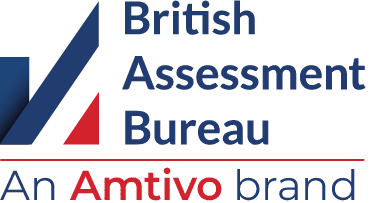Agency Legislation refers to legislation that has been put in place for agency and temporary workers since 2014 and revised in 2022 with the aim to ensure that there are laws in place to protect both agency and temporary workers treating them as other employees, but also with the aim to ensure that there is a responsibility to the organisations who are hiring them. It may apply to both Approved Contractor Scheme (ACS) companies and organisations that have implemented the Code of Practice for Labour Provision (COP 119).
What Is Agency Legislation?
Agency Legislation aims to ensure that the following (amongst others) are put into place for agency and temporary workers and adhered to:
- Employment rights
- Pay rights
- Rights around working hours and rest breaks
- Protection from discrimination
For full details of the Agency Legislation, please consult the Internal Manual: Agency Legislation.
What Is the Approved Contractor Scheme?
The Approved Contractor Scheme (ACS) is a quality assurance scheme from the SIA which serves the private security industry.
Its primary goal is to ensure that the accredited provider adheres to a clearly defined and independently assessed set of quality standards throughout its business. To achieve ACS certification, the applicant must fulfil all seven requirements defined by the SIA.
British Assessment Bureau offers ACS, so, if you’ve already made an application to the SIA and they have accepted your application, you can request a quote for certification.
Why Should ACS Companies Check if Agency Legislation Applies to Them?
ACS-certified companies should check whether the Agency Legislation applies by consulting the HMRC Agency Legislation Internal Manual. Whilst the ACS requirements do not specifically prevent the use of self-employed staff, companies need to test against CEST and Agency Legislation, if they are using staff who are not PAYE. As ACS requirements include “Assignment-specific training/induction/information is given” and supervisory visits, these are likely to indicate that Agency Legislation will be relevant.
How Does Agency Legislation Affect Non-ACS Companies Going for COP 119?
For non-ACS companies who are going for the Code of Practice for Labour Provision (COP 119), they need to test against Agency Legislation as the ‘supervision, direction, or control’ is likely to be from the company deploying the individuals. If it is deemed Agency Legislation does apply to them they must employ staff on PAYE.
Summary of the Agency Legislation Provisions
Agency and temporary workers: agency legislation – provisions from 6 April 2014: supervision, direction or control (as to the manner in which the worker provides the services).
- For the agency legislation to apply, it is necessary to consider whether someone has (or has the right of) supervision, direction, or control over how the worker provides their services to the client.
- The worker can be subject to (or to a right of) supervision, direction, or control as to how they provide their services by anyone for the agency legislation to apply. This includes the client, the agency, independent project managers, consultants, or other persons. It does not need to be exercised in practice, but someone must have the right to do so for the agency legislation to apply.
- To determine if this applies, you should consider the worker’s arrangement as a whole. The terms of the engagement and the way the work is done for the engager must be considered overall to determine if a right of supervision, direction, or control over how the worker provides their services is present.
- Supervision is someone overseeing a person doing work, to ensure that person is doing the work they are required to do, and it is being done correctly to the required standard. Supervision can also involve helping the person where appropriate to develop their skills and knowledge.
- Direction is someone making a person do is/her work in a certain way by providing them with instructions, guidance, or advice as to how the work must be done. Someone providing direction will often coordinate how the work is done, as it is being undertaken.
- Control is someone dictating what work a person does and how they go about doing that work. Control also includes someone having the power to move the person from one job to another.
- This may entail considering factors such as what work is being performed by the worker and whether the worker can decide when or where they carry out the work. However, these factors on their own will not be sufficient to bring someone within the agency legislation. What is important is whether there is supervision, direction, or control over how the work is done.
- Where a worker is engaged by or through an agency, there will be a presumption that there is (or there is the right of) supervision, direction, or control over the worker. This means it is the responsibility of the agency that contracts with the client to whom the worker provides their services to operate PAYE and comply with COP119.
For full details of Agency Legislation, please consult the Internal Manual: Agency Legislation.
Please Find Below Direct Links to Our ACS and COP 119 Service Pages:
Click here to find out more about the Approved Contractor Scheme (ACS)
Click here to find out more about the COP 119 service



